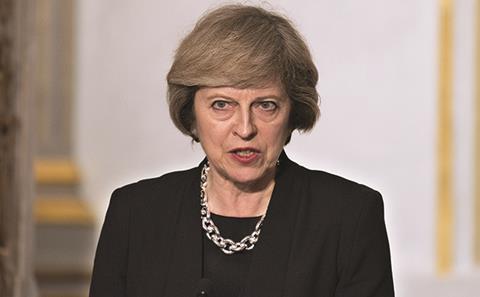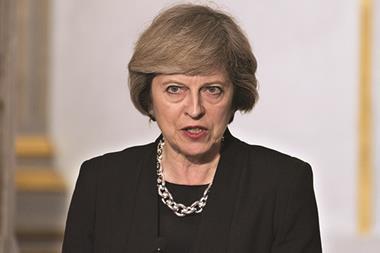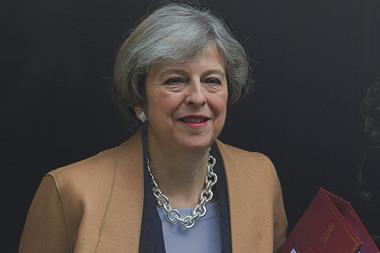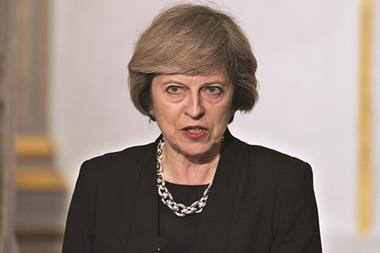Help to Buy: it’s the gift that just keeps on giving. At least for the housebuilders.

Amid gathering uncertainty as to the future of HTB, where the government provides an ‘equity loan’ of up to 40% of the price of a newly built home, Theresa May’s announcement at last week’s Conservative Party conference that the scheme was to receive a further £10bn of funding was greeted with incredulity by many in the party.
Former transport secretary and fellow Property Week columnist Steve Norris - one of the scheme’s many critics who argue that it inflates house prices and housebuilders’ share prices rather than volumes - decried the move as a “monumental mistake”.
On cue, £1bn was added to the value of shares in the sector on the day after Mrs May’s speech and Norris, the non-executive chairman of BNP Paribas, elaborated: “It is simply economically illiterate: if you just increase demand without increasing supply, prices will rise”.
On pricing, be in no doubt: the scheme is inflationary. Government figures show that overall prices for HTB units have risen by an annual average rate of 10.8% since the first units were sold in 2013. That compares with growth of 7.1% for the whole housing market, according to the Land Registry.
Step-change in output
It’s a somewhat more subjective exercise determining whether housebuilders have delivered the government’s step-change in output, or ‘additionality’. They had been voraciously buying land in the aftermath of the financial crisis and were going to build the homes and sell them in any case, just at normal margins. HTB has merely taken a bigger share of their output rather than adding to it.
On pricing, be in no doubt: the HTB scheme is inflationary
I dusted down some of my old forecasts for the top five builders made soon after the introduction of HTB. Actual completions in 2016 turned out to be only a few percentage points higher than my original volume estimates. Where I was well out of kilter was on prices and margins.
It’s not so much the headline rate of price inflation that could fuel critics; it’s the breakdown of the numbers. At 10.4% per year, the growth in HTB prices has been higher for the biggest group, first-time buyers (who account for about 80% of sales), than non-HTB buyers, who have registered a more sedate 6.2% annualised rate.

Why have FTBs been seeing faster inflation? Possibly because they are a captive market. To an extent, HTB has been ‘the only show in town’, since banks have been reluctant to provide ‘95%’ mortgages.
In a similar vein, it is recent buyers in London who are paying the most inflated prices, 14.4% per year since mid-2013, with the main leap being since February 2016, when maximum equity loans of 40% rather than the 20% norm were allowed in the capital.
The latest data shows a huge jump in the average price-to-income ratio of buyers in London. For FTBs in London under HTB, the average price in Q2 this year was a shade under £450,000 and the average total household income of those buyers was £71,000. That’s an eye-watering 6.34 multiple.
A more contentious question is whether buyers can ever extricate themselves. Banks are generally reluctant to provide more than 90% loans to ‘second steppers’, so sellers will have to find new equity after repaying the government loan, which goes up and down in line with eventual sale price.
That’s hard enough if you’re trying to recycle the 20% equity loan on the average £260,000 home outside London, but 40% of the average £450,000 property in the capital could prove nigh impossible, especially if, as some suspect, the original price was inflated by an ‘HTB premium’.
May’s intentions were to entice the elusive youth vote to the Tories, but by the end of the conference, her support was falling off faster than the lettering on the conference stage set. If she stands down, will HTB be seen by her successor as both politically and economically ‘damaged goods’?





























1 Readers' comment